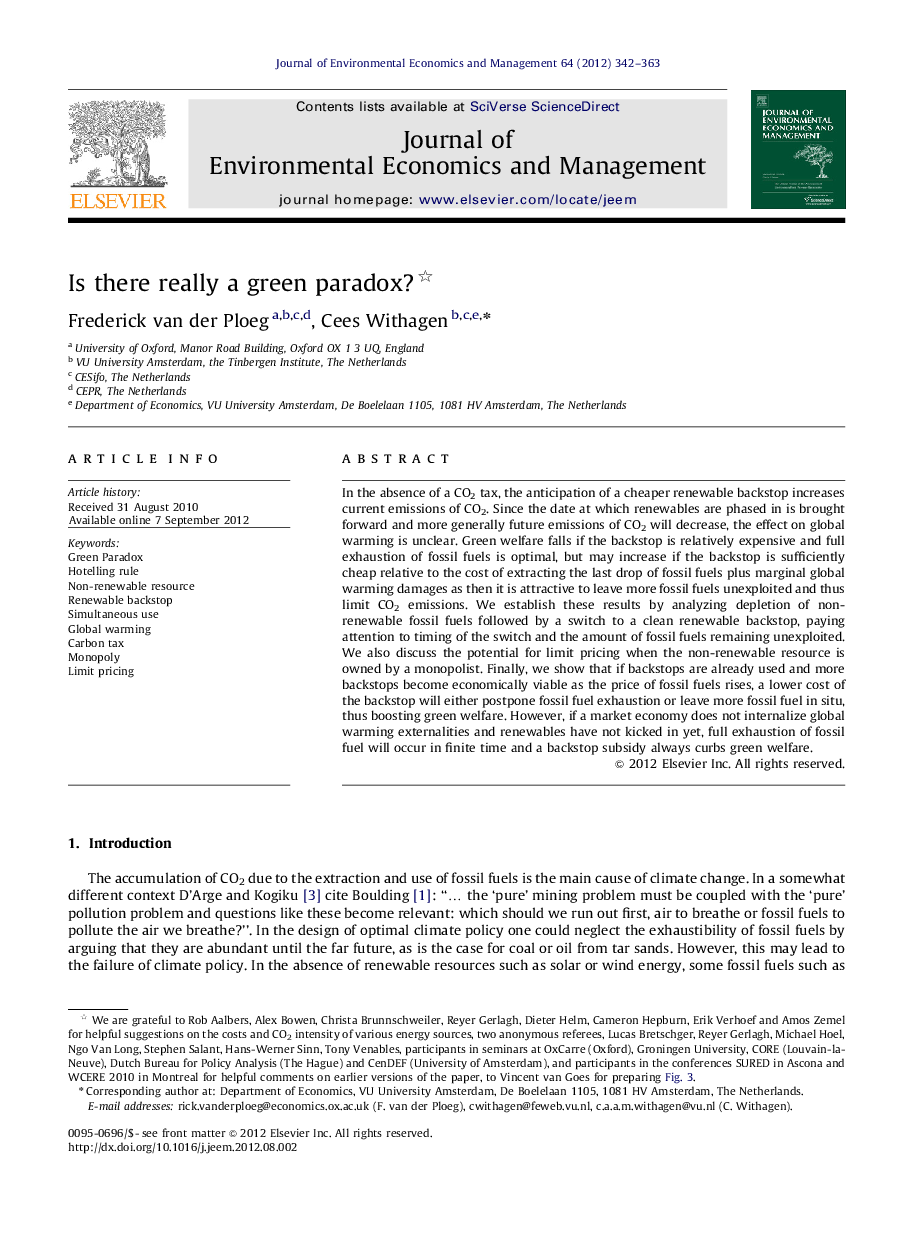| Article ID | Journal | Published Year | Pages | File Type |
|---|---|---|---|---|
| 958963 | Journal of Environmental Economics and Management | 2012 | 22 Pages |
In the absence of a CO2 tax, the anticipation of a cheaper renewable backstop increases current emissions of CO2. Since the date at which renewables are phased in is brought forward and more generally future emissions of CO2 will decrease, the effect on global warming is unclear. Green welfare falls if the backstop is relatively expensive and full exhaustion of fossil fuels is optimal, but may increase if the backstop is sufficiently cheap relative to the cost of extracting the last drop of fossil fuels plus marginal global warming damages as then it is attractive to leave more fossil fuels unexploited and thus limit CO2 emissions. We establish these results by analyzing depletion of non-renewable fossil fuels followed by a switch to a clean renewable backstop, paying attention to timing of the switch and the amount of fossil fuels remaining unexploited. We also discuss the potential for limit pricing when the non-renewable resource is owned by a monopolist. Finally, we show that if backstops are already used and more backstops become economically viable as the price of fossil fuels rises, a lower cost of the backstop will either postpone fossil fuel exhaustion or leave more fossil fuel in situ, thus boosting green welfare. However, if a market economy does not internalize global warming externalities and renewables have not kicked in yet, full exhaustion of fossil fuel will occur in finite time and a backstop subsidy always curbs green welfare.
